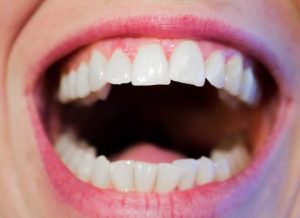 10 Tricks to Improve Oral Health
10 Tricks to Improve Oral Health
The mouth consists of a set of hard tissues (bones and teeth) and soft tissues (mucous, gingiva and muscles) that work as a team to perform all the functions each is assigned. It is the first part of the digestive system and therefore responsible for receiving food, crushing/masticating/chewing, preparing and swallowing.
After chewing, some food remnants may stick to our teeth and mucous. If we do not clean the mouth well after meals, these remains end up depositing between the teeth and the gingiva, inflaming the gingiva and allowing for dental decay. If we do not remove the bacterial plaque, it can mineralize and form what is known as ‘tartar’. This is just one of the things that can happen if we do not take proper care of our teeth. We at the Dental Medical Group propose 10 tips that will help you to prevent pathologies that, in addition, usually lead to expensive treatments.
Food, our best ally
To maintain good oral health avoid excessive consumption of refined sugars. In addition, there are a number of foods that help us strengthen our teeth and gums, and that way, they fight the bacteria that build up on dental plaque. In particular, they are all those that carry the vitamins C and A (oranges, lemons, grapefruit …) fluorine (bananas, carrots, apples, water …) and calcium (milk and derivatives).
Brush teeth daily
To remove plaque and other food on the internal, external and chewing tooth surface, it is essential to brush after each meal for about three minutes. Try to brush less than 15 minutes after the meal.
Do not forget to floss.
Floss; eEspecially at night. During sleep, due to a lack of saliva, there may be more bacterial plaque in our mouth.
Look at your teeth and gums
We must look, from time to time, for inflammation, bleeding or spots on our gums. As well, we can check with the help of the tongue that there are no holes between the teeth.
Do not skip your routine dental checks
From the age of 3, it is important for children to go for dental check-ups. This will remove their fear and help prevent future oral diseases. Adults should do this at least once a year.
Periodic dental cleaning
There are areas of difficult access in our oral cavity to which daily dental brushing or flossing does not arrive. In these areas the bacterial plaque builds up, giving rise to tartar, which can be removed by professional cleaning. Thus, we will be preventing major problems.
Tobacco, enemy number one
Tobacco is closely related to most dental and gum diseases, increases the risk of dental implant failure, as well as oral cancer or missing teeth.
Stress management
Problems of jaw joint and dental fractures are two of the most common problems caused by stress, since in situations of stress we usually tighten our teeth, especially when we sleep unconsciously.
Avoid bad breath
Often caused by inadequate or inadequate oral hygiene, it can affect our social relations. The best thing to prevent it is to be more consistent in hygiene, avoiding alcohol and tobacco and drinking lots of water.
Smile!
Smiling regularly has numerous beneficial effects for our health, makes us feel happier and reduces stress. If you follow all these tips you will enjoy a greater oral health and an enviable smile.

Comments